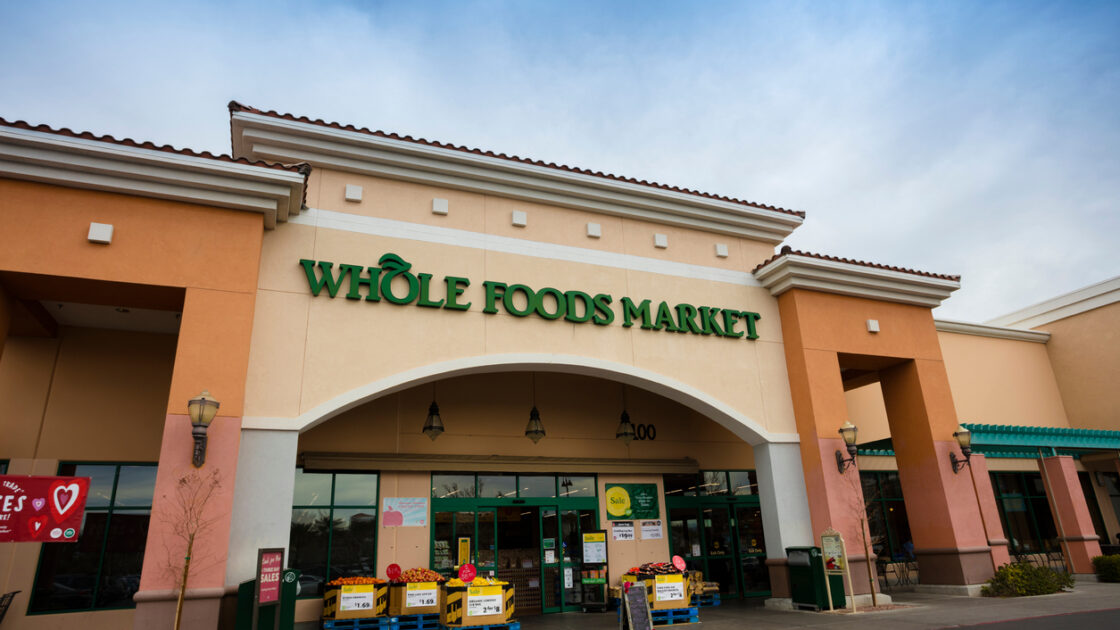The Shakeup at Whole Foods Market is Just Getting Started

After the announcement Friday that Amazon would be acquiring Whole Foods Market for nearly $14 billion, major changes are in the works for the organic chain, including plans to slash its infamous “Whole Paycheck” prices.
Rumors of job cuts have surfaced, with a source close to the company telling the Times-Picayune that Amazon expects to make some of the chain’s 90,000 employees redundant. Unlike workers at other large grocery chains, Whole Foods Market employees are not unionized.
These rumors aren’t surprising, given Amazon’s no-checkout technology, already in development at its Seattle convenience store, AmazonGo.
“Amazon’s brutal vision for retail is one where automation replaces good jobs,” Marc Perrone, president of the United Food and Commercial Workers International Union, said in a statement Friday. “Sadly, the hard-working men and women who work at Whole Foods now face an uncertain future.”
However, Drew Herdener, an Amazon spokesman, said in a statement the company has “no plans to use no-checkout technology to automate the jobs of cashiers at Whole Foods and no job reductions are planned.”
Experts also say that Amazon may consider modifying inventory to reduce prices, and Whole Foods CEO John Mackey said that while Amazon isn’t “stupid enough” to change the chain’s high standards for quality, “Over time, there could be other formats that evolve that – that might – wouldn’t be branded Whole Foods Market, potentially, wouldn’t be our standards.”
That said, industry observers have said that Amazon may add a selection of discounted, non-organic food to the selection at Whole Foods, according to Reuters.
One analysis from CNBC notes, however, that Amazon’s price slashes may not require such great changes to the stores themselves, because Amazon’s business model is so radically different from that of other companies.
“Competing with Amazon is terrifying for any incumbent business because the company’s executive team operates on a radical model whereby the company’s overall net income is nearly zero quarter after quarter,” CNBC reports. “While Apple, Google, Microsoft, and Facebook hire lawyers and accountants to amass vast stockpiles of cash legally held in overseas tax haven subsidiaries, Amazon simply chooses to barely accumulate any cash at all.”
Because of this business model, Amazon could simply choose to accept lower profit margins than Whole Foods Market did as an independent chain, in order to “supercharge their grocery delivery ambitions,” according to the analysis.
In addition, industry insiders note that the sale will not just reduce prices at the chain but also increase the reach of Whole Foods Market’s organic products across the country.
“One of the biggest untold stories about the Amazon/Whole Foods combination is the potential it will have on food justice, access, and availability issues in poor and underserved communities everywhere,” John Foraker, president of Annie’s, tells Living Maxwell. “There are millions of Americans without access to healthy food. They can buy 44’s, Cheetos, and cigarettes, but try finding an organic tomato.”
However, some experts note that planning for Amazon’s changes to the chain is premature. Whole Foods Market shares skyrocketed from $42 when the agreement was announced Friday to $43.22 on Monday, which, according to the Chicago Tribune, indicates that investors expect a higher offer to arrive, either from a competitor like Kroger, Albertsons, or Wal-Mart, or else from one or more large private-equity firms.
Rumors of Whole Foods Market’s eventual sale have been surfacing ever since a major investor criticized many of the chain’s managerial decisions and demanded a shakeup to attempt to reverse seven straight quarters of same-store sales declines.
Related on Organic Authority
I Don’t Know What I’ll Do if Whole Foods Market Sells Out
Whole Foods Market to Abandon ‘Local’ Focus, Looks to Cement Big Box Status in Recent Managerial Shakeup
Are the New Whole Foods Market Egg Standards Really Helping Hens?

